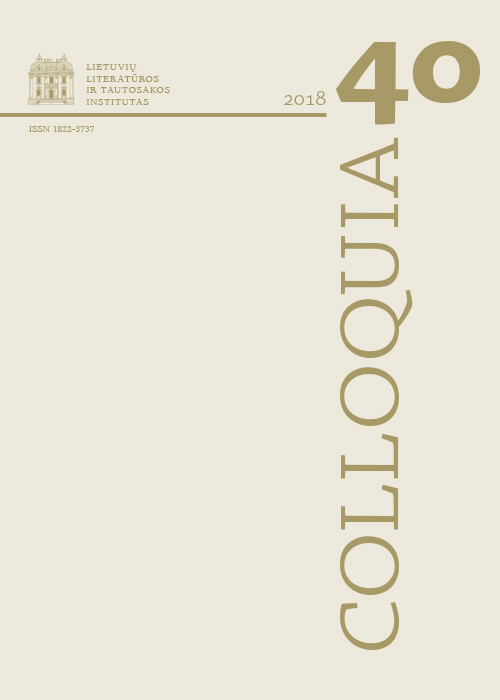Technical Objects in the Writing of a Philologist: The Coordinates of Juozas Aputis’s Worldview
Abstract
The author of this article explores how the prose of Juozas Aputis differs from Soviet-era works that dealt with similar themes. Recalling Aputis’s interest in technique, she examines its role in his works. The author of the article explores several aspects of Aputis’s prose: parallels between literary techniques and a character’s personal, inner life; shifting perceptions of the world; connections to vehicles; and attitudes toward traditional values and the modernisation of rural life. The unusual view of the world modelled in Aputis’s prose opens up possibilities for reflecting upon Aputis’s unique role in Lithuanian literature as a mediator between the opposing poles of nature and civilisation. The article calls into question the stereotypical view of Aputis as an author of rural life and suggests that his work can also be viewed within the context of Modernist literature – that Aputis can be seen as breaking with tradition not only in terms of ideas but in the figurative and stylistic aspects of his writing. At the end of the study the article raises the question of Aputis’s potential for reaching contemporary readers and recommends that the interpretive concepts of defamiliarisation and mythical narrative be applied to his work.
Downloads
Most read articles by the same author(s)
- Loreta Mačianskaitė, Icchokas Meras’ ‘Lygiosios trunka akimirką’ (Stalemate) in the Unequal Battle Against the Censors. The editorial office of Дружба народов. A transcript of a scrutiny of comr. Meras’ manuscript. July 8, 1963. , Colloquia: Vol. 53 (2024): Colloquia
- Loreta Mačianskaitė, Antanas Škėma’s 110th Birth Anniversary. The Diptych of Memories , Colloquia: Vol. 45 (2020)
- Kristina Škėmaitė-Snyder, Loreta Mačianskaitė, Laurynas Katkus, Petrushka , Colloquia: Vol. 45 (2020)
- Loreta Mačianskaitė, Homo academicus lituanicus , Colloquia: Vol. 41 (2018)




